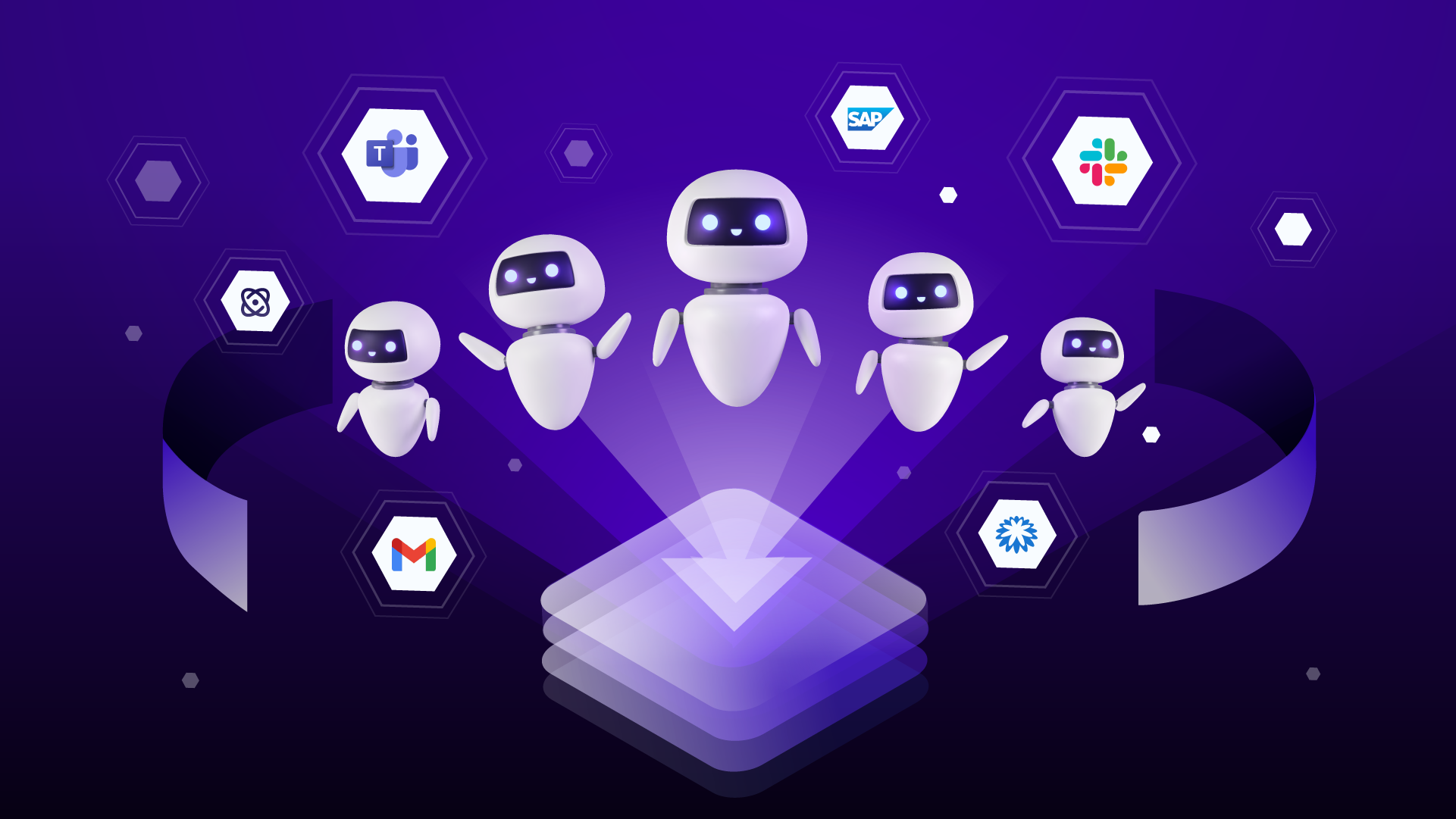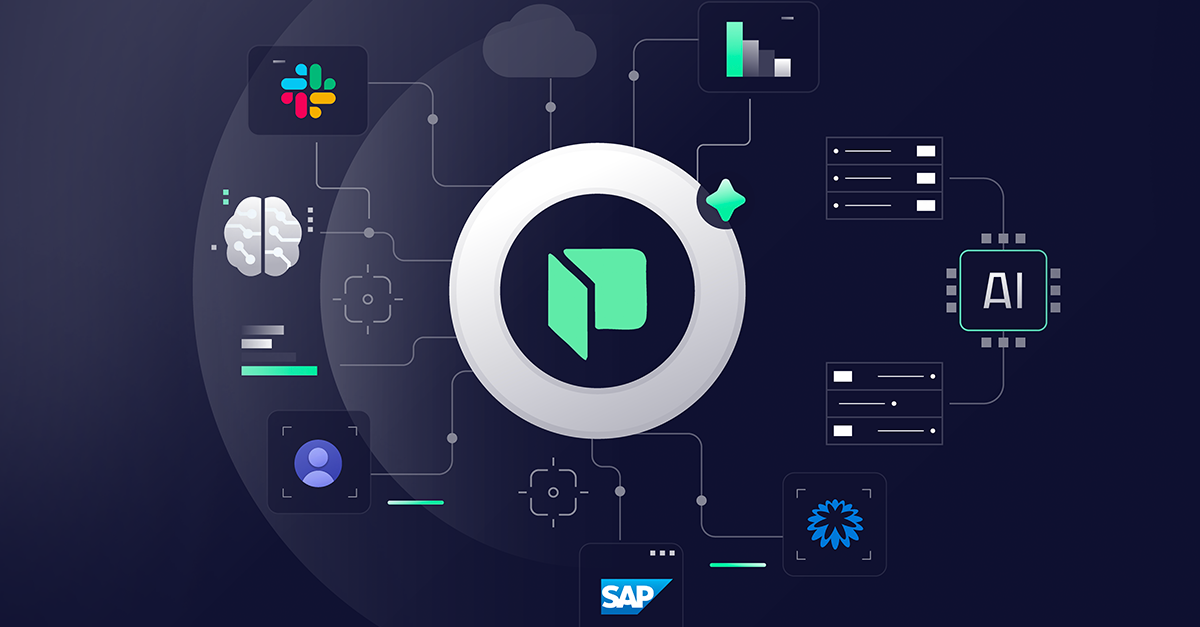
The winner of this year’s Changemakers event—where we pair nonprofits with business operations experts for a week-long hackathon-style collaboration—was In4All. In4All’s mission is to pull local businesses together with schools to expand learning opportunities for historically underserved student populations and to encourage those students’ aspirations.
Their challenge: In4All needed to turn their existing Airtable workspace into something more like a true platform.
Before Changemakers, they thought their best solution to the problem would need to center on developing internal staff resources. That’s not easy for nonprofits, which usually have tight staffing budgets, and where team members are usually already wearing multiple hats and may require extra training to gain needed expertise in a new area. Further, technical challenges require technical expertise, and In4All doesn’t have IT or dev support for tasks like these.
In the end, with the help of the makers they were paired with, In4All created a fascinating process automation solution that provided precisely what they were missing.
The process solution revolved around an automation audit spreadsheet, a streamlined event-based automation, a form for external updates to specific fields in company CRM, and an “executive dashboard” for the Board of Directors.
These base elements they orchestrated into a highly effective business process automation solution.
At the conclusion of the Changemakers event, we sat down with two members of the winning team to learn more about their experience, the operations problems they needed to solve, and how they went about doing it. Kristin Payne was the Program Impact Director for In4All. One of the operations experts who worked with In4All on Changemakers is Aurelien Maurel, an engineering and technology consultant.
Below is an edited and combined Q&A from those conversations.
Tonkean: How did you learn about Changemakers?
Kristin Payne: I learned about Changemakers in the lead-up to the first Changemakers in 2020. At the time, our organization was struggling with a project management system that was not working for us. We were hoping to get some help in how to make it work better, and one of my co-workers found this opportunity and signed us up.
We worked with Ben Wallace [a Solutions Architect at Tonkean] and some IU students and had an amazing experience in 2020. Since then, I've stayed connected to both our makers and the AdaptivOps community—and appreciate the connection and opportunities to learn and find support. This year's Changemakers helped us look at getting to that next level.
Aurelien Maurel: I joined the [AdaptivOps] maker community last year. I like to meet the people there, they're very nice and kind. And the mission—what they're doing is good, you know, removing operational roadblocks for NGOs. And it was also a good way for me to network with like-minded people.
Tonkean: In what way(s) did you participate in Changemakers?
KP: Since we developed our Project Management system for our programs in 2020, I've held the main responsibility for the system (utilizing Airtable), so my role in this year's Changemakers was the institutional knowledge and the Here's what's working [and] Here's what we wish we could do.
AM: I joined the team and was listening to […] the NGOs talking about operational roadblocks, first, to understand what they're doing [and] their value proposition. The NGOs, they’re very good. They also visualized a solution. They have good ideas. But they don't necessarily know how to execute.
We [makers] are supposed to know how to execute, to some extent, because there are some issues that will take, you know, longer than a week to solve! But we can also help to kind of draw a roadmap. But in these hackathon weeks, we maybe focus on the quick wins. on on the Yeah, so. Yeah. Quick Wins. And then because
Tonkean: How many hours did you have to spend time on building a solution?
AM: It's about two or three hours a day. It depends on how fast you are. I'm slow. [laughs] So maybe for some makers, it takes only an hour a day. But there were 30-minute meetings every day for five days.
Of course, we had to coordinate with the time zones, because so many makers can be on the east coast, and the NGOs on the west coast or central time, and I was in France. But we were all very kind enough to wake up early. So we could connect.
Tonkean: What was the biggest challenge?
KP: It's such a short amount of time. It feels a bit like we're just getting started as it's over. Everyone has such limited time available. On the flip side, I also felt that the sprint nature kept us invested and moving forward.
AM: The challenge personally for me, first, was the cultural challenge—the language barrier. And then the challenge is listening, and understanding the issue—to make sure that we bring value or what's needed. It’s definitely also a challenge to execute, and to find the correct solution, the right solution to a problem. And the simpler the solution is, the better.
Tonkean: Can you talk in a little bit of detail about the problem/solution, and how you worked with the makers on it? What were the challenges, and how did you solve them?
KP: We were looking to take Airtable to the next level, bringing in our CRM system (we currently use both Airtable and Little Green Light for Customer Relationship Management). We wanted to create a more integrated platform and opportunity for information sharing.
We started the week with our makers, Tyler [Meunier, a GTM expert and founder of Covert Operations, LLC] and Aurelien, spending some time understanding our workflow, what was working, and where we were struggling. They were able to use their more technical lens to assess prospective solutions and identify potential pitfalls.
In the end, we realized that one of our big needs was to tighten up our automations and documentation of them.
Tyler created an automation spreadsheet that really spells out what automations are in use so that anyone coming in can understand those things that are happening in the background. The team identified ways that folks external to the organization could contribute to our data directly. Finally, the team helped us create some high-level views that we can use with our Board of Directors to help them better understand and support our work.
Tonkean: What were some of the highlights for you? Or most notable things that happened?
KP: The support and encouragement that the community offers is really amazing. Getting to see the work of other nonprofits and the mutual admiration that exists in the room is such a motivation. Each nonprofit participant and maker has a different role and skill set, but there's a genuine appreciation for the perspective that each person brings and feeling that we're working towards something big together.
On the technical side of things, the opportunity to get input and another set of eyes on the problem helped us better understand and reimagine the possible solutions.
On an individual level, being matched with a maker in Vermont and one in France and talking soccer/futbol and the World Cup made the world feel a little smaller and more connected.
Tonkean: You're a returning nonprofit; what made you want to come back?
KP: As with most nonprofits, In4All has a small staff and we each wear many hats. We don't have the ability to call IT or get support on technical solutions to our problems. The knowledge that the makers bring to the table is phenomenal.
Tonkean: You won this year's challenge—congrats!
KP: Being in that room with the other makers and nonprofits…there's so much amazing work being done on the nonprofit end, and passionate technical knowledge and operations brilliance on the maker end. We already won with the support and the experience—the "win" was an overwhelming bonus!
Tonkean: Is there anything else you’d like to say or add?
KP: Technical and operations support needs in nonprofits like ours cannot be overstated. Experiences like Changemakers not only provide tangible support and problem solving, they also open our eyes to what is possible and how our work can grow with technical/operations investments.
Airtable and the lens that our experiences with Changemakers has brought has helped us see how technical tools can support communication and bridge knowledge within our organization and keep us laser focused on the mission of our work.
Every classroom we enter, every STEM activity we bring to elementary students, every middle schooler who solves a problem they care about in our Design Thinking program—all of these connections with students, volunteers, and teachers happen because we have this amazing logistical and communication tool at our disposal.
In our Changemakers hackathons, operations pros work with nonprofits on any roadblocks holding them back—the sorts of technology gaps, inefficiencies, and operational limitations that too often accompany nonprofits’ lack of resources. At the end of the week, a winner is declared from among the participating organizations, and they receive $5,000.
Through Changemakers, we’ve matched more than 50 makers with over 35 nonprofits looking to solve their operational challenges. Changemakers has saved these organizations over 20,000 hours of manual work and donated $15,000 to their causes.
For Changemakers 2022, our participation grew to 10 nonprofit organizations and 19 makers—some new to Changemakers, and some alumni. (This dovetails with the growth of our community, which grew by 200 members in 2022!)

